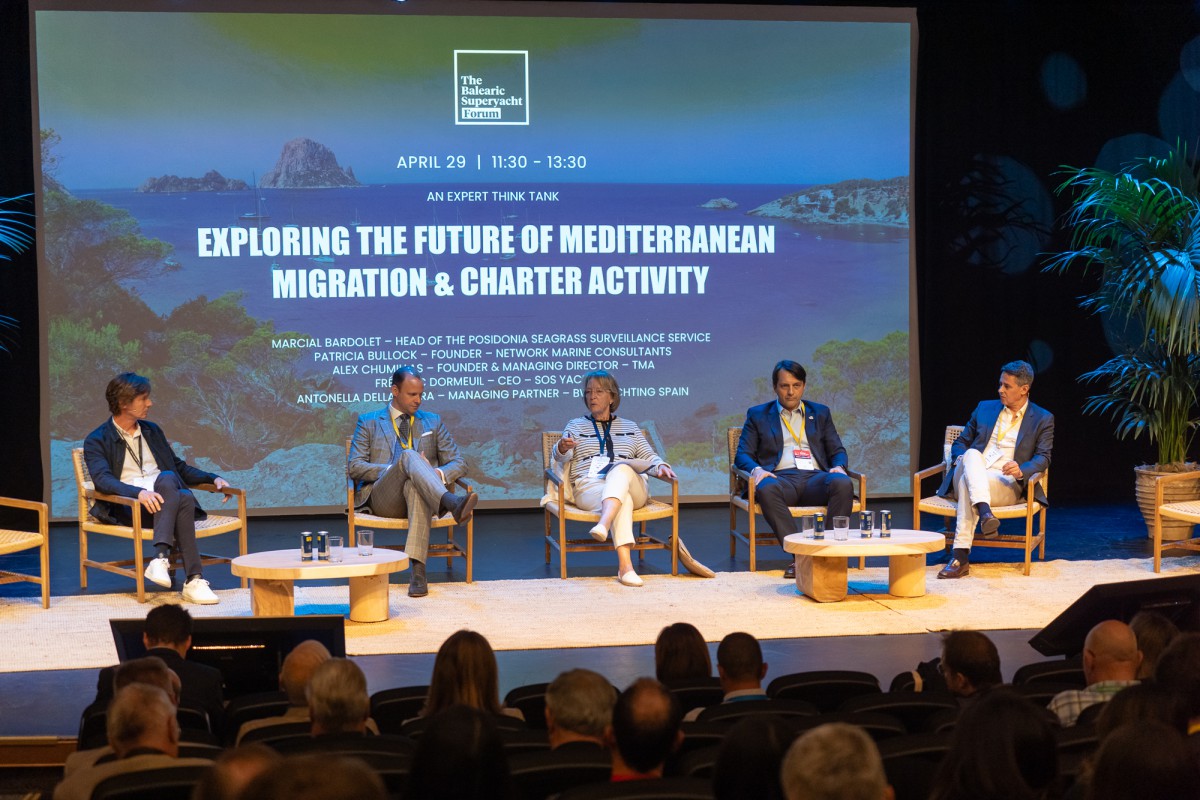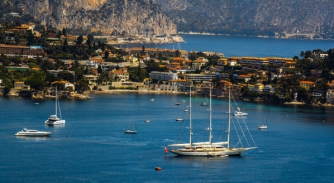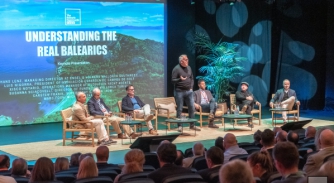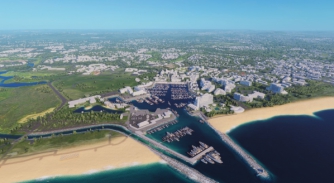A legal labyrinth
Why regulatory fragmentation threatens the Mediterranean’s dominance…
Here, the Balearic Marine Cluster examines how regulatory complexity and fragmented VAT frameworks are shaping the future of Mediterranean yachting and highlights the need for greater alignment to sustain the region’s competitiveness.

In the world of yachting, the Mediterranean has long been considered the undisputed epicentre – a playground of beauty, culture and convenience that no other region could match. Yet beneath the surface of its turquoise waters, a quiet but powerful force is reshaping the balance of global charter activity: regulatory fragmentation.
Across Europe’s supposedly unified market, the rules that govern charter operations, VAT and non-EU ownership are not only inconsistent – they are becoming a deterrent. Industry insiders warn that the Mediterranean’s greatest threat is not technological or environmental progress, but a lack of legal coherence that is pushing yacht traffic eastward and beyond.
A maze of rules no one can navigate
During the Operations Think Tank at The Balearic Superyacht Forum 2025, the discussion turned quickly from logistics to law. As several panellists observed, the Mediterranean operates less like a single region and more like a collection of micro-jurisdictions – each with its own interpretation of what “charter compliance” means.
Frédéric Dormeuil (SOS Yachting) pointed out that over 700 VAT structures are currently active across the region. Some contradict one another; others overlap. The result is a regulatory landscape so complex that even experienced managers hesitate to operate in certain countries.
• Owners and charter managers face unpredictable fiscal exposure.
• Non-EU owners often avoid key markets such as Spain and Italy entirely.
• Legitimate operators lose competitiveness against those who exploit loopholes or relocate to simpler jurisdictions.
What was once a manageable inconvenience has evolved into a commercial risk. As one participant noted, “regulatory opacity is no longer a nuisance – it’s a deterrent to investment.”
The cost of uncertainty
When a sector’s legal framework becomes unpredictable, business confidence suffers. In the Mediterranean, the lack of clarity surrounding VAT and licensing procedures has turned fiscal planning into guesswork.
For owners, the consequences are immediate: legal exposure, delayed itineraries and escalating costs for advice and compliance. For charter companies, it means shifting fleets and marketing focus toward regions that offer simplicity – and predictability.
The economic weight of the industry makes this uncertainty particularly damaging. In leading Mediterranean markets, the nautical economy represents a multi-billion-euro ecosystem that sustains tens of thousands of jobs. In Italy alone, the sector delivered an estimated impact of around €27 billion and supported more than 100,000 jobs, with a multiplier effect of 2.7 – meaning that each euro invested in yachting circulates nearly three times within the wider economy. As Patricia Bullock reminded us, the industry must communicate this reality more effectively to the public and policymakers alike: yachting is not an elite indulgence but a driver of employment, innovation, and skilled labour across the Mediterranean.
Countries like Greece and Turkey have taken notice. Over the past decade, they have streamlined their charter regimes, simplified licensing, and extended concession periods for marinas and operators. The message is clear: while the western Mediterranean debates policy, the eastern flank is welcoming business.
The result is a slow but steady migration of yacht traffic – not driven by climate or infrastructure, but by regulation itself.
A fragmented industry in need of a voice
If the legal complexity were not enough, the Operations Think Tank also highlighted the lack of unity within the industry. From shipyards to brokers, agents to associations, every sub-sector has representation – yet collaboration remains limited to occasional joint statements or one-off initiatives.
Theo Hooning (SYBAss) raised a crucial point: without a Mediterranean-wide federation capable of speaking with authority in Brussels, the industry remains fragmented, reactive and politically weak.
In this context, Alex Chumillas – co-president of the Superyacht and Business Aviation Think Tank, an initiative he has been leading for the past three years – represents a step in the right direction. His group, composed of leading legal and fiscal experts from both the yachting and business aviation sectors, is actively working to establish precisely what this discussion called for: a permanent mechanism for advocacy and coordination. One of its core goals is to ensure the industry’s voice is effectively represented before European institutions.
In practical terms, this means that key decisions affecting charter access, environmental compliance and taxation are often made without meaningful input from the very people who operate the yachts. The vacuum is filled by inconsistent interpretations, regional politics, and outdated national frameworks.
Beyond bureaucracy: the reputational factor
Regulatory fragmentation does more than complicate operations; it erodes reputation. To politicians and the general public, yachting often appears as a world of privilege, far removed from the economic and social reality it supports.
Patricia Bullock (Network Marine Consultants) shared an anecdote during the forum: a senior Spanish official responsible for approving charter permits had never stepped aboard a superyacht. After one visit, his perception – and later, his policies – changed completely.
The takeaway was clear: ignorance breeds resistance. When decision-makers don’t understand the industry’s contribution to employment, training, and environmental innovation, they regulate it as if it were expendable.
To protect its legitimacy, the superyacht sector must not only simplify its rules but tell its story better – one of value creation, skill development, and economic impact across coastal communities.
Why the mediterranean can’t afford complacency
The Mediterranean’s dominance is no longer guaranteed. New charter hubs are emerging, offering easier entry, lower taxes, and digitalised administration. French Polynesia now counts more than 200 visiting yachts each year; Thailand and Australia are reporting consistent charter growth.
If the Mediterranean continues to operate as a legal patchwork, it risks losing what once seemed unshakable: its default status as the world’s premier yachting region.
This is not a matter of luxury or prestige – it is about operational legitimacy. As highlighted during the Think Tank, without unified advocacy and coordinated regulatory frameworks, Europe’s most valuable maritime economy could slowly erode its own foundations.
Conclusions
The message from the Operations Think Tank was clear: the future of the Mediterranean yachting industry will not depend solely on innovation or environmental progress, but also on structure, clarity, and unity.
Fragmented laws and competing interpretations have turned compliance into a gamble and discouraged investment. What the region needs is a coordinated response – one that transcends national interests and recognises the Mediterranean as an interconnected maritime economy.
• Establishing a permanent Mediterranean Superyacht Federation to advocate at EU level.
• Creating a centralised operational knowledge hub that aggregates up-to-date VAT, charter, and customs rules.
• Developing a “charter passport” system to simplify access across jurisdictions.
• Implementing joint training and awareness programmes for both authorities and industry professionals.
Ultimately, this is not about deregulation – it is about coherence. If the Mediterranean wishes to remain the global benchmark for yachting, it must move beyond its legal labyrinth and embrace a shared framework for transparency and growth.
The future of the region’s yachting economy depends not on who has the best coastline, but on who makes it easiest – and safest – to operate there.
NEW: Sign up for SuperyachtNewsweek!
Get the latest weekly news, in-depth reports, intelligence, and strategic insights, delivered directly from The Superyacht Group's editors and market analysts.
Stay at the forefront of the superyacht industry with SuperyachtNewsweek
Click here to become part of The Superyacht Group community, and join us in our mission to make this industry accessible to all, and prosperous for the long-term. We are offering access to the superyacht industry’s most comprehensive and longstanding archive of business-critical information, as well as a comprehensive, real-time superyacht fleet database, for just £10 per month, because we are One Industry with One Mission. Sign up here.
Related news

A convenient silence
Oscar Siches on why our industry should not be the exception to the imperative of standing up for basic human values
Opinion

Anchoring in the French Mediterranean
The Professional Yachting Association issues a May 2024 Addendum relating to anchoring in French Mediterranean waters
Crew

Billions in the Balearics
Some key findings have emerged in a report, revealing insights into the billion-euro local nautical sector at the inaugural Balearic Superyacht Forum
The Balearic Superyacht Forum

The Algarve’s new superyacht hub
Portugal is relatively untouched by superyachts, but the completion of a new marina on the Algarve could be the catalyst for a new haven in the western Med
Business
Related news
A convenient silence
9 months ago
Anchoring in the French Mediterranean
2 years ago
Billions in the Balearics
2 years ago
The Algarve’s new superyacht hub
2 years ago
NEW: Sign up for
SuperyachtNewsweek!
Get the latest weekly news, in-depth reports, intelligence, and strategic insights, delivered directly from The Superyacht Group's editors and market analysts.
Stay at the forefront of the superyacht industry with SuperyachtNewsweek



